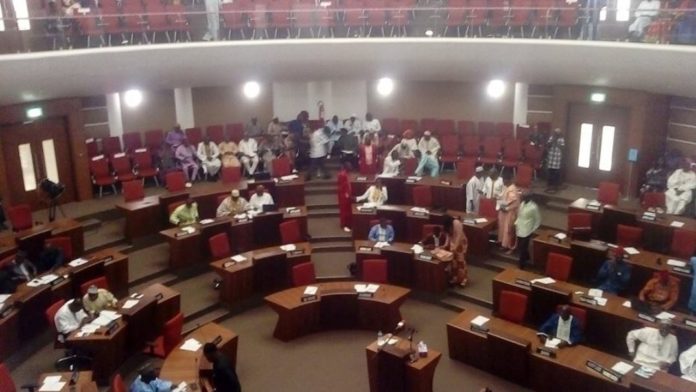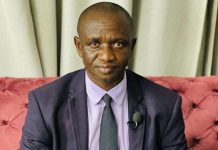By Awa B. Bah
The National Assembly (NA) Select Committee on Lands and Regional Government on Monday June 18th 2018, laid their report before Deputies for consideration and adoption. This session is the second sitting in the first Legislative year of the National Assembly, for 2018.
Section 109 of the 1997 constitution of the Gambia empowers the national assembly to establish committees to investigate and inquire into the activities of the administration of Ministries and Government departments. The engagement of the committee was a lawful oversight over public services meant to enable everyone keep their side of the social contract with taxpayers. The report discussed findings and recommendations of the first phase of the oversight function of the Select Committee on Regional Government and Lands, the Ombudsman and the IEC.
The Vice Chairperson of the committee Billay G. Tunkura, in his presentation, noted with appreciation the cooperation and invaluable support of the National Assembly Authority in financing their activities; that this bold initiative has enhanced their independent performance without fear or favour, affection or ill will. He commended Mayors, Councillors and Governors, for their active involvement in the exercise.
The committee began its oversight function with the appearance of the permanent secretary of the ministry of regional government and lands, to give an update on the policy overview within the ministry and the strength, challenges and weaknesses of the policy. The PS informed that the ministry coordinates and manages land matters, regional administration and local community development; that they have five technical units and departments under their purview.
The next engagement was with the ministry of lands and regional government and the idea was to familiarize and cement ties between the select committee and its line ministry. The PS who deputized the minister stated that due to technicalities and administrative challenges, it is difficult for them to find an appropriate and workable mechanism to address the issues of land allocation. On Councils, he said steps are being taken to make sure that 60% of the revenue collected is ploughed back to the people, which ofcourse has been an unachievable dream in the past.
The issue of old buildings about to collapse within Banjul by the Physical Planning, causes great threat to lives and properties of residents. This was highlighted by the committee. The director in his response said a survey has been conducted and a recommendation has been issued; that people encroach and erect illegal structures on the distance provided for beautification of the city and that they lack sufficient demolition materials that is making their work hard.
Banjul City Council’s projected budget was D97,495,554 for 2017 but that they realised D50,063,000 as actual revenue without any subvention.
According to the report, the BCC is said to have lamented the meagre resources for them to honour their 5% counterpart contribution to CILIP for implementation of wards projects; that this dormancy of their services makes it more difficult for them to appraise staff welfare.
At the Banjul Abattoir, it was discovered that the place was used by the former president and transformed as a garage for his broken green buses; that with the current Government, the area has been given back to the BCC and plans are afoot on the way to bring it back to abattoir life. At the Banjul Craft Market, the Mayor revealed to them that the market owes more than half a million dalasi, to the BCC; that the cause of this debt was as a result of the Ebola outbreak which left the market stalls closed for business; that Council informed the committee that plans are underway to recover the and settle the debt by waiving it.
At the KMC, he reported that the Chief Executive informed them that they funded the market and car pack to the tune of D7.9 million; that the market has forty shops and over three hundred stalls and the facilities are underutilized; that only twenty-five shops are occupied; that the council has reduced the licence from D500 to D300, to encourage people but the situation persists. The car park he said is not functional after efforts to engage the drivers association and the transport union to utilize the facility.
Meeting with the west coast region governor, he said that the committee was informed that due to the technicalities and challenges, it is difficult to find an appropriate and workable force to address challenges faced by the region, such as market for women, infrastructural development, proper banking service for revenue collection and youth issues. At the BAC, he said they were unable to access actual figures of revenue collected because there was no subvention received; that the oversight function was not a witch hunting exercise but a mechanism to control the menace of corruption and cultivate the culture of accountability and transparency in our public institutions. The end result he said would help not only to inform the public about development ideas and proposals, but to also convince citizens that public institutions are interested in listening to their views and responding to their priorities and concerns.




















